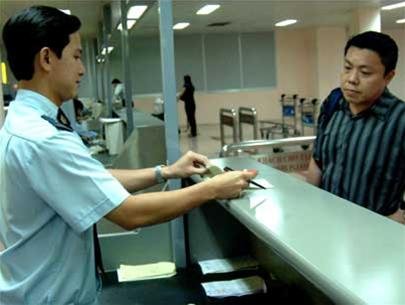The validity of Asia Pacific Economic Cooperation (APEC) business travel cards for Vietnamese businesspeople will be lengthened from three years to five years, according to a government decision issued last week.
Pursuant to Decision 54/2015/QD-TTg, publicized last Friday to amend and supplement some articles of an old decision issued in 2006, the APEC Business Travel Card (ABTC) will from mid-December expire five years after the issuance date, and will not be renewable.
As a result, local businesspeople who need a new card will have to complete the procedure to get a new one after expiration, the decision said.
Also according to the new decision, which will take effect in December 15, almost all Vietnamese businesspeople working in management positions in state-owned enterprises, Vietnamese entrepreneurs working in established legitimate enterprises under Vietnamese law, and public employees and officials responsible for participation in APEC activities are eligible to be granted the ABTC.
All ABTCs issued before September 1, 2015 will continue to be used until their expiry date.
The decision followed a similar one stipulated by the APEC Business Mobility Group in July this year, which extended the validity of the APEC Business Travel Card from three to five years, beginning September 1, 2015.
The decision of APEC Business Mobility Group followed an agreement reached by all 21 APEC member economies after the meeting of the APEC Business Mobility Group in Subic Bay, the Philippines in January 2015.
In 1997, APEC created the APEC Business Travel Card to allow business travelers pre-cleared, short-term entry into participating member economies, thereby facilitating fast and efficient travel for businesspeople within the APEC region.
The ABTC removes the need to individually apply for visas or entry permits, saving valuable time and allowing multiple entries into participating economies during the five years of validity.
Cardholders will also benefit from faster immigration processing on arrival via access to fast-track entry and exit through special APEC lanes at major airports in participating economies.
APEC is a forum for 21 Pacific Rim member economies that promotes free trade throughout the Asia-Pacific region.
The member economies that fully participate in the scheme include Australia, Brunei, Chile, China, Hong Kong, Indonesia, Japan, Korea, Malaysia, Mexico, New Zealand, Papua New Guinea, Peru, Philippines, Russia, Singapore, Taiwan, Thailand, and Vietnam.
Canada and the United States are transitional members of the scheme.
The APEC Business Travel Card reduces the cost of cardholders’ business travel between APEC economies by 38 percent, according to APEC Policy Support Unit research.
The card was specifically created to cut application fees by 27.8 percent, application time costs by 43.3 percent and immigration processing time costs by 52.4 percent.
The number of active card users in the year to June 30, 2015 increased by more than 15 percent, to over 190,000, compared to around 164,000 in mid-2014.
Like us on Facebook or follow us on Twitter to get the latest news about Vietnam!





















































